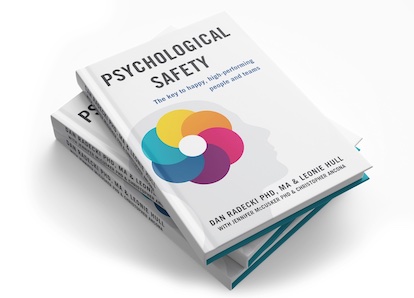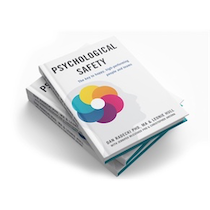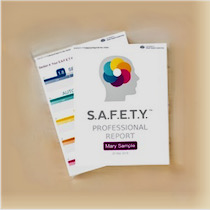Many first-time startup founders have wonderful ideas about how they are going to treat their team members. Of course, all of them are about how great of a boss they are going to be – the best boss ever!! But then the realities of business survival hit them square in the face. The pressure mounts to find clients, bring in revenue, launch products, fix products, keep clients happy, collect unpaid debts, pay bank loans, etc. And that stress unavoidably gets transmitted to the team, but what matters is the culture they have built in their organization. Work culture is a critical factor in how a team responds to the challenges they face, and it is a key determiner in whether our business thrives or dies.
Many founders that have built multiple companies understand the realities of starting a new company. They expect the team to work like crazy; they expect them to be resilient; they expect them to be strong. They hear about the concepts of Psychological SAFETY, but quickly toss it aside as a bunch of garbage ideas created by people who have never run a company before. They think that these ideas are nothing more than a distraction, or worse, protection for weak team members that should not be there. They may even see stress as a good thing that pushes people to work harder. And let’s face it, the research shows that this is true. When people are put under a lot of stress, it does trigger their survival mode, and they work harder. Those who can’t handle it will leave. And with the turnover, a manager may believe they are getting rid of the weak, so they can fill the company with the most resilient people who can “take the realities of business.”
If your employees are doing rote work that only requires slaving away for hours, then there might be something to this way of thinking; however, rote work done efficiently usually won’t lead to long term success in business. You need creativity, ingenuity, problem-solving, and decision-making with the best information possible. You need your team to take well-calculated risks. You need your team to work efficiently together. You need to be able to retain top talent.
Though you can only do so much to protect your team from the harsh realities of business, you also cannot expect employees to deal with a stressful environment and work til they drop. This method of operating fails to deliver on the core competitive advantages necessary to succeed today. The concept of Psychological SAFETY is not about protecting weakness. It is about getting the best out of your team in a highly competitive and constantly changing environment.
For start-ups in particular, the only way you can make good decisions is to have all the brain power in the room cooperating. The only way your team can feel comfortable taking risks that will lead to significant competitive advantages is if they feel safe in taking those risks. The only way to retain talent is to ensure that they work in an environment where they are respected. The only way to build resilience in your team is to make them a strong operating unit . Accomplishing all of those things requires psychological safety.
Psychological safety does not mean turning a team culture into a hippy, always-happy love fest. Psychological safety is a concept that allows a team to function efficiently. Marines aren’t “weak,” and they understand the importance of building psychological safety within their unit:
Security
Marines train like crazy to be able to operate with Security, the first facet of Psychological SAFETY. They do everything they can to make scenarios as certain as possible. They build the skill sets so they can react as optimally as possible when things do become uncertain. Consequently, they have confidence in their ability to react.
Autonomy
They are also trained to be autonomous, the next facet of Psychological SAFETY. They remain Autonomous while also working inside highly cooperative units.
Fairness
You better be sure Marines exercise Fairness. They all will die for each other and have a fair mentality of, “I watch your back. You watch mine.”
Esteem
Marines tend to have amazing self-esteem. It is built inside the Marine Corps. Inside their units. It’s built by succeeding together, supporting each other together, and going through rough times as a unit
Trust
And finally, there is no possible way to imagine a lack of Trust, the final faucet of Psychological SAFETY, inside a fighting unit. If they did not stick together as brothers, they would not survive.
You
Though the marines act as a unit, they also respect each other as individuals with their own background and stories.
Every single high-performance team has Psychological SAFETY. If it is good enough for Marines, and other elite military units, there’s no reason for a business to consider these concepts a way to protect the weak.
If executed properly, Psychological SAFETY does not protect the team from the realities of the business operating environment, it simply makes the team confident in moving into the volatile, uncertain, chaotic and ambiguous fast-moving environment with all their brain power and creativity so they have a chance to be successful as a strong operating unit.
Want to know more about how to create Psychological SAFETY in your organization? You can find us online at BrainLeadership.com.
If you want to know more about how to use a brain-based approach to build Psychological S.A.F.E.T.Y.™ in your team to help you get through the tough challenges we face over the next years, contact us at BrainLeadership.com













